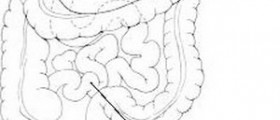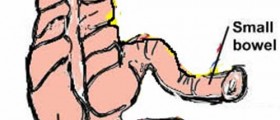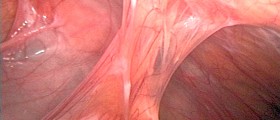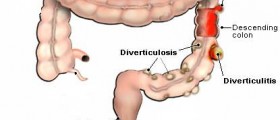
Appendicitis is the medical term for the inflammation of the appendix. This condition manifests through the painfulswelling of the appendix. The appendix is placed in the lower abdomen on the right side. It is a fingerlikepouch connected to the large intestine. It is not discovered yet what thefunction of the appendix is, since once it is removed, it does not affect theoverall health of the patient.
The inside of the appendix is called appendiceal lumen. The appendixproduces mucous, which travels through appendiceal lumen to the large intestine. Appendicitis is a condition that can affect anyone, although those between10 and 30 years of age are at the highest risk.
Causes of appendicitis
This condition may be induced by various reasons. When the appendiceal lumenis obstructed or blocked, it can lead to the inflammation of the appendix, sincethe bacteria present in the appendix begin to overproduce themselves in theblocked mucus. As a consequence, the swelling occurs. The inside of the appendix can be obstructed because of several reasons,such as the injury to the abdomen. Furthermore, the inflammatory bowel disease, Crohn's disease and ulcerative colitis may also cause appendiceal lumen blockage.Sometimes the obstruction occurs because the lymph tissue in the wall of theappendix becomes enlarged due to some gastrointestinal infection. When appendicitis occurs, it should be removed immediately before it bursts.Otherwise, the infection may spread throughout the abdomen and lead to theoccurrence of a serious condition called peritonitis.
Symptoms of appendicitis
The symptoms of this condition are easily identified and they are usuallythe same in most people. The first symptom of appendicitis is the abdominal pain that occurssuddenly. First it starts at the belly button area and then expands to the rightside. This pain tends to aggravate as the time passes, and gets worse whentaking deep breaths or when coughing. Additionally, the most common accompanying symptoms to the pain in theabdomen are nausea, vomiting, loss of appetite and diarrhea or constipation.Abdominal swelling and a low-grade fever may also occur.
Treatment of appendicitis
In most cases, appendicitis is treated by removing the inflamed appendix. Bya prompt medical intervention, the bursting of the appendix can be prevented. Appendectomyis the name of the surgery for the removal of the appendix. The patient can be treated with certain antibiotics and a liquid or softdiet when the condition is not very serious.

















Your thoughts on this
Loading...